News review - December 2017
November’s news was always going to be dominated by the Budget – lobbying for more funding in the run-up to the 22 November statement and, with the announcement of additional funds, picking through the detail (see page 10). Unsurprisingly, the lobbying for more NHS funding was led by NHS Providers and the NHS Confederation, alongside thinktanks such as the Health Foundation and Nuffield Trust. More surprisingly, Simon Stevens, NHS England chief executive, called for more funding. In a speech to NHS Providers’ annual conference, he said it was time to honour the call by the Vote Leave camp in the EU referendum for extra funding to follow a leave vote.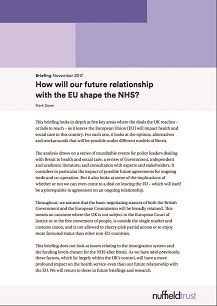
Continuing the Brexit theme, the Nuffield Trust warned that patients could bear the brunt of the negative repercussions of a ‘no deal’ exit. A briefing examines five areas of the negotiations and what a deal or lack of a deal would mean for the NHS. It said that even if agreements are reached on a financial settlement, citizens’ rights and the border between Northern Ireland and the Irish Republic, trade and co-operation deals would be needed to secure the fast, safe passage of vital supplies and drugs, as well as the future of medical research projects. An exit deal will be required to ensure a number of areas are not compromised, including the rights of EU NHS staff, the care of expats and the legal status of approved medicines. Exiting the EU could bring greater flexibilities such as loosening restrictions in the working time directive and in competition regulations, but the trust said scope for flexibility in these areas post-Brexit could be limited.
Despite the additional funding announced in the Budget, there will still be a focus on efficiency and a renewed emphasis on fraud prevention. Launching the NHS Counter Fraud Authority – a new special health authority to tackle fraud, bribery and corruption – at the beginning of November, interim chief executive Sue Frith said its creation was ‘good news for the taxpayer, for patients and for the honest majority working in and with the health service’. The authority believes fraud costs the NHS £1.25bn a year.
Following recent criticism of NHS cyber protection measures by the National Audit Office, the service has boosted its data security. NHS Digital announced a £20m project that includes monitoring of threat intelligence and sharing of guidance and advice; help for NHS organisations to assess their cyber security; and offering help to NHS organisations that believe they may have been subject to a cyber attack. The new Security Operations Centre will also employ so-called white hat or ethical hackers to test NHS systems for vulnerabilities.
NHS Improvement encouraged trusts to implement a consolidated 2017/18 pay award for very senior managers (VSMs) in line with the Senior Salary Review Body recommendations. The review body published its report in July and recommended the organisations it covers – arm’s length bodies and ambulance trusts – should use in full the 1% available for basic pay rises unless there is a clear reason to do otherwise. A letter from NHS Improvement chief executive Jim Mackey urged other providers to award pay rises in line with this – as has been done in previous years. However, in some circumstances, he would not expect a VSM to get the 1% – if, for example, they were paid above the median (or upper quartile for trusts in special measures).
Staff and employers delivering services under accountable care models would be given access to the NHS Pension Scheme under measures put forward in a Department of Health consultation. As well as technical changes on the operation of the scheme, it proposes that a nomination form would no longer be needed for unmarried or cohabiting partners to claim survivor pensions. The consultation closes on 29 December.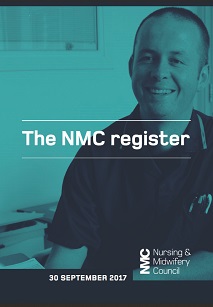
The Nursing and Midwifery Council said the number of nurses and midwives from the UK and European Union countries leaving the UK register has increased over the past 12 months. The council compared data for October 2015 to September 2016 with October 2016 to September 2017. Over that period, the number of UK graduates leaving the profession increased by 9%, while the number of leavers from the EU increased by 67%, it said. The council oversees the register, which allows nurses and midwives to practise in the UK. It added there had been a dramatic drop in the number of nurses and midwives from the EU joining the register – numbers fell from 10,178 last year to 1,107 this year.
Increased competition in the NHS through patient choice had mixed effects on efficiency, according to a York University study. A report from the university’s Centre for Health Economics said greater competition leads hospitals to raise their efficiency. They do so by increasing admissions per bed and the proportion of day cases and by reducing the number of untouched meals. However, hospitals appeared to be less efficient in terms of cancelled elective operations. The researchers also confirmed that the effect of competition was greater for hospitals facing more rivals and, generally, less efficient hospitals tended to respond more to competition.
The Scottish Parliament Health and Sport Committee has published a report that is highly critical of efforts to integrate local health and social service budgets. It said integration authorities spent more than £8bn a year, but the committee was unable to identify what the money had achieved. It was ‘unacceptable’ that it was impossible to evaluate spending or outcomes, it said. There was concern over the lack of progress towards a shift in the balance of care. Authorities’ challenges include budget-setting, measuring outcomes and shifting resources to make transformational changes.
October’s operational performance figures for England showed some improvements, but more people waited for elective care. NHS England said 90.1% of patients in A&E were seen within four hours, compared with 89.7% in September 2017 and 89.1% in October 2016. There has been a reduction in delayed transfers of care, with an average of 5,610 beds occupied due to delays each day in September compared with 6,552 a year earlier. There was a 5.1% increase in the number of patients starting elective treatment in the past 12 months, but in September more than 3.8 million people were on the waiting list – 3.8% higher than a year earlier. At the end of September 89.1% had been waiting for fewer than 18 weeks – the figure stood at 90.6% in September 2016.
Month in quotes
‘During the campaign a promise was made to the British people – in exchange for Brexit there was the possibility to have a better-funded NHS. All I am saying is that was a good promise to make and now is a good time to begin to deliver it.’
Simon Stevens, NHS England
‘Fraud in the healthcare system not only undermines public confidence in the NHS but also diverts valuable resources away from caring for patients - it is estimated that prescription fraud alone costs the NHS £217m each year.’
Health minister Lord O’Shaughnessy explains why the NHS needs a new counter fraud agency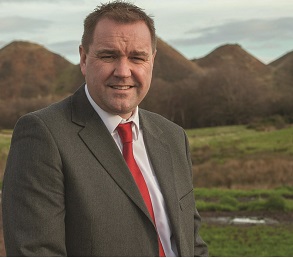
‘There’s a distinct lack of data to identify and evaluate outcomes, including spending and savings. This would be unacceptable for any public money, let alone £8bn. It needs rectifying immediately and a mechanism for facilitating scrutiny of performance, spend and savings put in place.’
Neil Findlay (pictured), convener of the Scottish Parliament Health and Sport Committee, asks what local integration authorities have achieved
‘We are seeing a continuing rise in nurses and midwives leaving the register, and our data is clear this is being driven by UK and EU registrants. These figures highlight the major challenges faced by the UK’s health and care sectors around recruitment and retention of staff. Those responsible for workforce matters will no doubt respond to what these trends are showing.’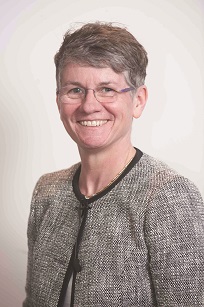
Nursing and Midwifery Council chief executive and registrar Jackie Smith raises concerns over nurses leaving the profession
From the HFMA
Among the blogs on the HFMA’s website in November is a commentary on the latest NHS financial temperature check. HFMA head of policy and research Emma Knowles looks at the Q2 provider and commissioner financial positions in the context of the Budget and the results of the temperature check survey. The latter showed finance directors are concerned about their ability to deliver their financial targets this year. Ms Knowles concludes that difficult choices will have to be made about the use of NHS funds.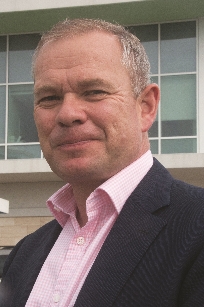
Bill Shields (pictured) continues his blogs from Bermuda, where he is the territory’s hospitals board chief financial officer. In his latest instalment, he describes how patients in need of social care, rather than healthcare, are looked after, and the local tariff, which includes many perverse incentives and disincentives.
The HFMA has published a new tool to help organisations that are undergoing a structural reorganisation such as a merger. With clinical commissioning groups consolidating and more system-wide working generally, be it through accountable care systems, devolved health arrangements, sustainability and transformation partnerships or other organisational forms, this aims to be a ºpractical checklist for finance teams.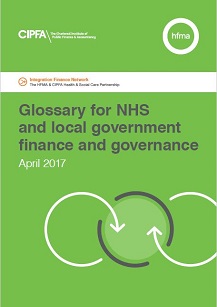
The HFMA and CIPFA have also produced a joint glossary of terms used in the NHS and local government, which includes a brief overview of the structure and funding flows in both sectors in England.
• To read any of these, click blogs or publications, or download our new 'myHFMA' app.
Related content
We are excited to bring you a fun packed Eastern Branch Conference in 2025 over three days.
This event is for those that will benefit from an overview of costing in the NHS or those new to costing and will cover why we cost and the processes.